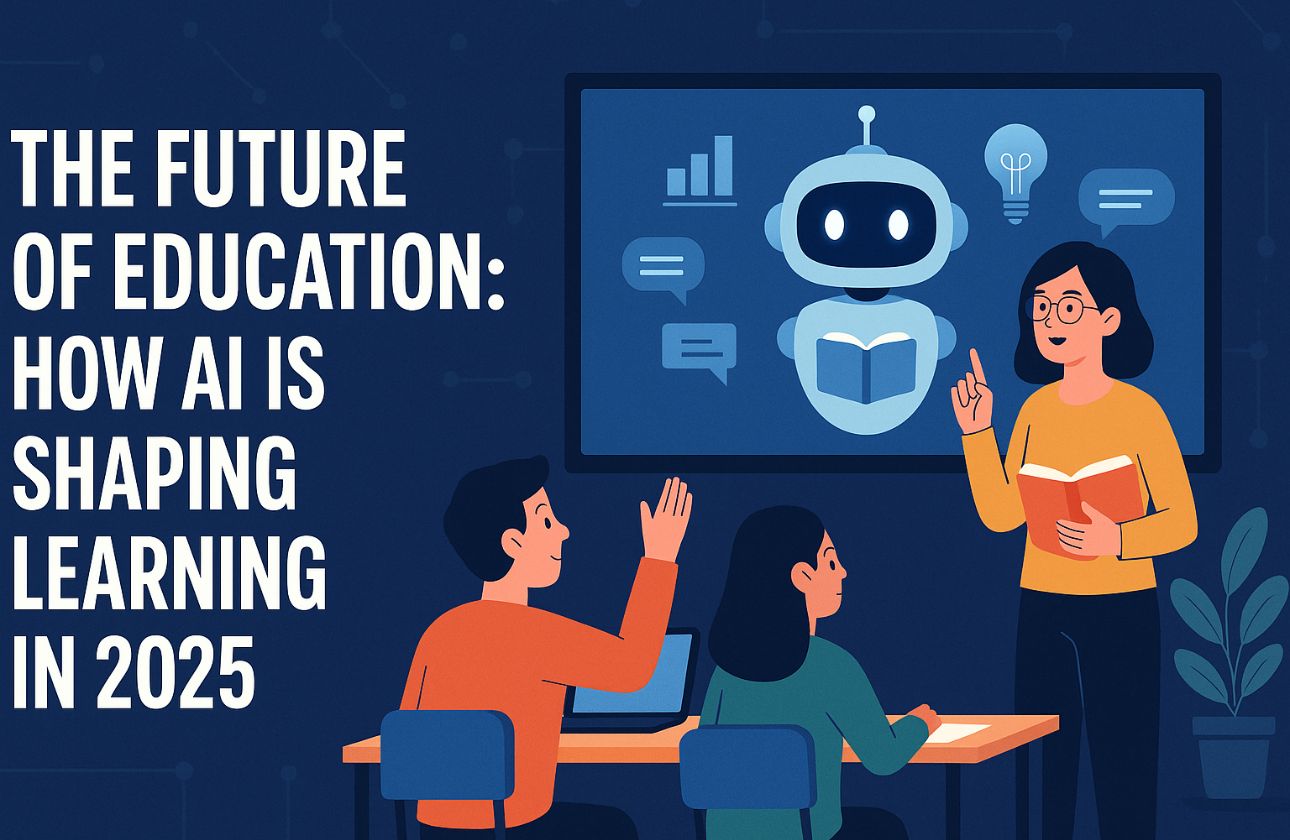Education is undergoing a massive transformation, and at the center of this change is artificial intelligence. As we move into 2025, AI is no longer just a futuristic concept—it is actively shaping how students learn, how teachers teach, and how institutions deliver education. From personalized learning paths to real-time feedback, AI is revolutionizing the classroom experience.
This blog explores the key ways AI is reshaping education in 2025 and what it means for students, educators, and parents.
How AI is Transforming Education in 2025
1. Personalized Learning at Scale
AI-powered platforms analyze student performance and learning styles to create customized lesson plans. This ensures that each student learns at their own pace and receives content suited to their individual needs, improving both retention and engagement.
2. Intelligent Tutoring Systems
AI-based tutoring systems provide one-on-one support to students, helping them understand difficult concepts outside of regular classroom hours. These systems can simulate the experience of a human tutor and are available 24/7.
3. Automated Grading and Feedback
Teachers are saving time with AI tools that automatically grade assignments and quizzes. More importantly, AI provides instant, detailed feedback to students, allowing them to correct mistakes and improve continuously.
4. Predictive Analytics for Student Success
AI analyzes academic data to identify students who may be at risk of falling behind. Schools can then intervene early with tailored support to improve student outcomes and reduce dropout rates.
5. AI in Special Education
Students with learning disabilities benefit from AI tools that offer speech-to-text, text-to-speech, and adaptive content delivery, making learning more accessible and inclusive.
Benefits of AI in Education
-
Increased engagement: Personalized content keeps students more involved in their studies
-
Improved efficiency: Teachers save time with automated grading and administrative tasks
-
Data-driven insights: Institutions can make smarter decisions using real-time learning analytics
-
Accessibility: AI tools help break down barriers for students with different learning needs
Challenges and Concerns
While AI offers many advantages, it also presents some challenges:
-
Privacy and data security: Collecting student data raises ethical and legal concerns
-
Equity in access: Not all schools have equal access to AI-powered technology
-
Over-reliance on automation: Balance is needed to ensure human educators remain central to learning
Popular AI Tools and Platforms in 2025
-
Khanmigo – AI tutor by Khan Academy that guides students in real time
-
Socratic by Google – Helps students understand homework concepts using AI explanations
-
Duolingo – Uses AI to personalize language learning journeys
-
Quizlet AI – Creates flashcards and practice tests based on student learning behavior
-
SmartClassroom Systems – AI that assists teachers in managing attendance, performance tracking, and classroom behavior
The Role of Teachers in the Age of AI
Contrary to fears, AI is not replacing teachers—it is empowering them. Teachers use AI to enhance lessons, identify learning gaps, and spend more time on student interaction and creative instruction.
In 2025, the best educators are those who combine human empathy with data-driven teaching tools.
Future Outlook
By 2025 and beyond, AI will continue to evolve, integrating more deeply into curricula, administrative functions, and even educational policy-making. The goal is not just smarter education—but more human, equitable, and impactful learning experiences for all.
The future of education is being redefined by artificial intelligence. As AI tools become smarter and more accessible, they promise to improve outcomes, bridge learning gaps, and make education more personalized than ever before. Students, teachers, and institutions that embrace this shift will be better prepared for the demands of tomorrow.
To stay competitive and impactful, it's essential to adapt, innovate, and reimagine learning with the help of AI.




Comments (0)